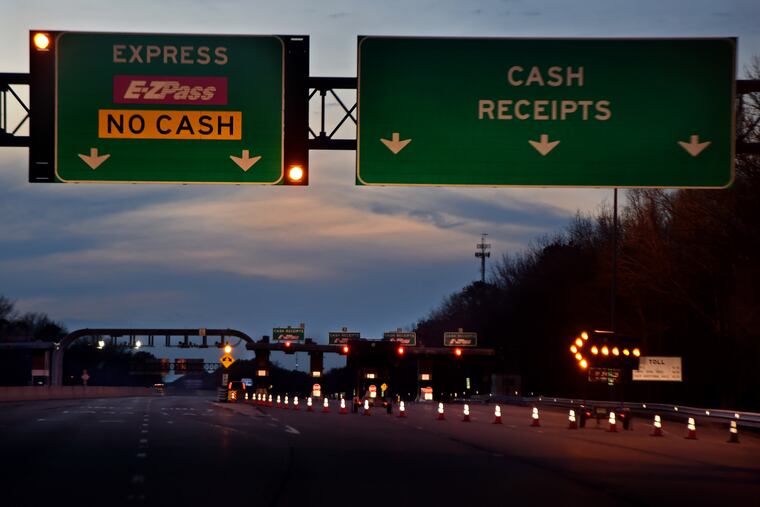Pause N.J. toll hikes and reboot spending plans | Editorial
Why are the independent authorities that oversee the New Jersey Turnpike and Garden State Parkway, as well as the Atlantic City Expressway, in such a hurry to raise tolls? The pandemic has limited the public hearing process; economic uncertainties loom; and toll hikes should be put on pause.

Local and state governments everywhere have been forced to shift gears and figure out new ways of thinking due to the deadly pandemic. But the independent authorities overseeing three major New Jersey highways are acting as if nothing has changed. They are moving forward with existing plans to widen roadways and make other capital improvements, to be financed by raising tolls.
Also of concern: These New Jersey agencies have raced ahead despite a public health emergency and its likely impact on public awareness or attendance at the hearings. The New Jersey Turnpike Authority held two sessions on March 18, despite calls by Gov. Phil Murphy and President Donald Trump to limit the size of public gatherings. Those hearings were livestreamed, and those conducted by the South Jersey Transportation Authority, which oversees the Atlantic City Expressway, were online only.
These two powerful authorities seem determined to launch their expensive public works projects whatever the cost and no matter how problematic the timing. This should raise red flags about the transparency and accountability of governmental bodies not only in New Jersey but everywhere ― especially during this crisis.
The New Jersey Turnpike Authority (which also operates the Garden State Parkway) and the South Jersey Transportation Authority want to raise revenue to widen roads and make other capital improvements. The planned projects would cost $24 billion over the next 20 years. To help pay for them, turnpike and parkway passenger car drivers would see an immediate toll increase of 36% and 27%, respectively, eventually rising to as much as 3% annually. Separately, about $500 million in capital projects proposed by the Transportation Authority would be funded by toll hikes that would boost the cost of trips to and from Atlantic City.
Neither authority has voted to raise tolls since 2008, and both began planning to do so long before the virus struck. But the thinking that may have made sense a dozen years ago may well be antiquated by the time the shovels hit the ground.
For example, transportation planning has for decades been guided by expectations of ever-increasing traffic volumes. But the coronavirus may fundamentally alter working, commuting, and buying habits — all of which could impact traffic and congestion predictions, and make costly expansions less urgent.
State or local governments in the region and across the country are likely to race to fund so-called “shovel ready” projects, with the quick promise of post-corona job creation. But the times demand a different approach.
If these two authorities want the public to pay ever-higher tolls, then the public should demand updated traffic projections and economic forecasts that take into account the pandemic’s impact. The plans must be revised, which ought to trigger a requirement for additional public hearings.
Investments in existing infrastructure are necessary. But now is not the time to launch enormously expensive highway widening projects in New Jersey — or anywhere, for that matter. The pandemic’s course is unknown, and its aftermath is expected to be complicated and costly. Neither of these authorities should spend a dime without making a better case for how their plans will make sense in our profoundly changed world.